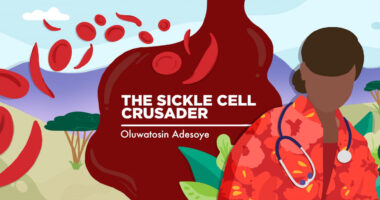Partnership to Ensure Supply of LentiGlobin, Potential Gene Therapy

Bluebird Bio extended a partnership with two divisions of Hitachi Chemical for the long-term development and manufacturing of LentiGlobin, its investigational gene therapy for sickle cell disease (SCD), and other potential and approved treatments.
The two subsidiaries — Hitachi Chemical Advanced Therapeutics Solutions (HCATS) and Apceth Biopharma — will be in charge of late-clinical development and manufacturing of LentiGlobin at facilities in Germany (Apceth) and the U.S. (HCATS).
“It is our honor to support bluebird bio in the manufacture of their potentially transformative gene therapies, to the benefit of patients in both the United States and Europe, as the foundation for our collaboration to address this devastating disease,” Robert Preti, PhD, chief strategy officer at Hitachi Chemical Life Science Business Headquarters, said in a press release.
“We are very happy to deepen our trustful and productive strategic partnership with bluebird bio,” added Christine Guenther, CEO of Apceth.
LentiGlobin is a gene therapy designed to boost the levels of hemoglobin, the protein that transports oxygen in red blood cells.
The therapy is designed to deliver working copies of a modified form of the beta-globin gene (βA-T87Q-globin gene) to patients’ hematopoietic stem cells (HSCs), the progenitor cells that generate red blood cells. Once formed, red blood cells start producing a modified version of hemoglobin, called HbAT87Q.
By inducing the production of an anti-sickling form of hemoglobin, LentiGlobin decreases the proportion of defective hemoglobin in red blood cells. This eases red blood cell’s destruction and reduces the risk for other complications associated with SCD.
The ongoing, open-label Phase 1/2 HGB-206 trial (NCT02140554) is assessing the safety and efficacy of LentiGlobin in three groups — identified as A, B, and C — of SCD patients.
Patients in group A followed the original trial protocol, while those in groups B and C are on an enhanced treatment protocol, approved in 2016, intended to increase the therapy’s efficiency.
HSCs were extracted from the bone marrow in patients of group A and B, and from the blood of those in group C.
LentiGlobin has been administered to seven people in group A, two in group B, and 17 in group C, as of Aug. 26, 2019, the company reported late last year.
These early results showed a post-treatment need for regular blood transfusions limited to two patients in group A.
The levels of anti-sickling HbAT87Q remained stable three years after treatment in all group A and B participants. An exploratory analysis of 12 patients from all three groups, followed for a minimum of six months, also found more than 70% of their red blood cells had anti-sickling HbAT87Q.
Levels of total hemoglobin also were stable at two years post-treatment. Median levels of total hemoglobin were 9 g/dL in patients from group A, and up to 13 g/dL among those from group B. In group C, maximum hemoglobin level was 15.2 g/dL. (Normal levels of hemoglobin in the blood range from 12.5 to 17.5 g/dL.)
In all groups, LentiGlobin reduced the frequency of painful vaso-occlusive crises (VOCs) and acute chest syndrome (ACS) in the two years after treatment. Treatment among people in group C led to lower levels of markers of red blood cells’ destruction, including reticulocytes, lactate dehydrogenase (LDH), and bilirubin.
Safety was acceptable, with one mild incidence of hot flush deemed related to LentiGlobin. It rapidly resolved without treatment.
“Our partnership with Hitachi Chemical is a significant example of our continued progress … and we believe Hitachi Chemical’s recent expansion will help support our growing commercial needs,” said Nick Leschly, CEO at Bluebird.
“We are pleased to benefit from their expertise as well as their footprint in both the US and Europe as we work to bring transformative therapies to patients in need,” he added.






